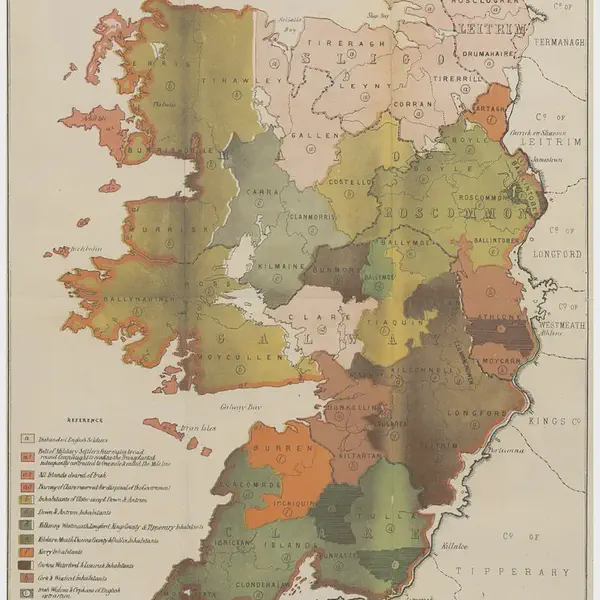
Charles I's Adventurer's Act Offers Confiscated Irish Land in Return for Investment in the Reconquest
March 19, 1642
The Act for the Setling of Ireland imposed penalties including death and land confiscation against Irish civilians and combatants after the Irish Rebellion of 1641 and subsequent unrest. British historian John Morrill wrote that the Act and associated forced movements represented “perhaps the greatest exercise in ethnic cleansing in early modern Europe.
The Adventurers’ Act, passed in 1642 during the reign of King Charles I of England, was a significant piece of legislation that played a crucial role in the history of Ireland, especially during the tumultuous period of the 1640s. The Act was officially titled “An Act for the speedy and effectual reducing of the Rebels in His Majesty’s Kingdom of Ireland to their due Obedience to His Majesty and the Crown of England.”
The primary purpose of the Adventurers’ Act was to raise funds for the suppression of the rebellion that had broken out in Ireland in 1641. The rebellion, led by Irish Catholic gentry in Ulster, quickly spread throughout the country, posing a significant threat to English rule in Ireland. The Act allowed individuals in England (referred to as “adventurers”) to invest money in the military campaign to reconquer Ireland. In return for their investment, these adventurers were promised land in Ireland that would be confiscated from the Irish rebels as a reward once the rebellion was suppressed.
The Adventurers’ Act thus provided a financial mechanism for funding the military campaign against the Irish rebels by offering confiscated Irish lands as an incentive. Investors could contribute specific amounts, which corresponded to varying acreages of land in Ireland, depending on the province where the land was located. This scheme attracted a substantial amount of capital, and many Englishmen invested in the hope of acquiring Irish estates.
The consequences of the Adventurers’ Act were far-reaching. It laid the groundwork for the Cromwellian conquest of Ireland later in the 1640s and the subsequent settlement policies that led to the widespread dispossession of Irish Catholic landowners. The Act was a key part of the broader context of land confiscation and plantation policies that reshaped the Irish landscape, contributing to the long-term tensions and conflicts between the Irish Catholic population and the English (and later British) government.
The redistribution of Irish lands to English investors and settlers under the Adventurers’ Act and subsequent Cromwellian policies significantly altered the demographic and political landscape of Ireland, with effects that lasted for centuries, contributing to the complex historical relationship between Ireland and Britain.